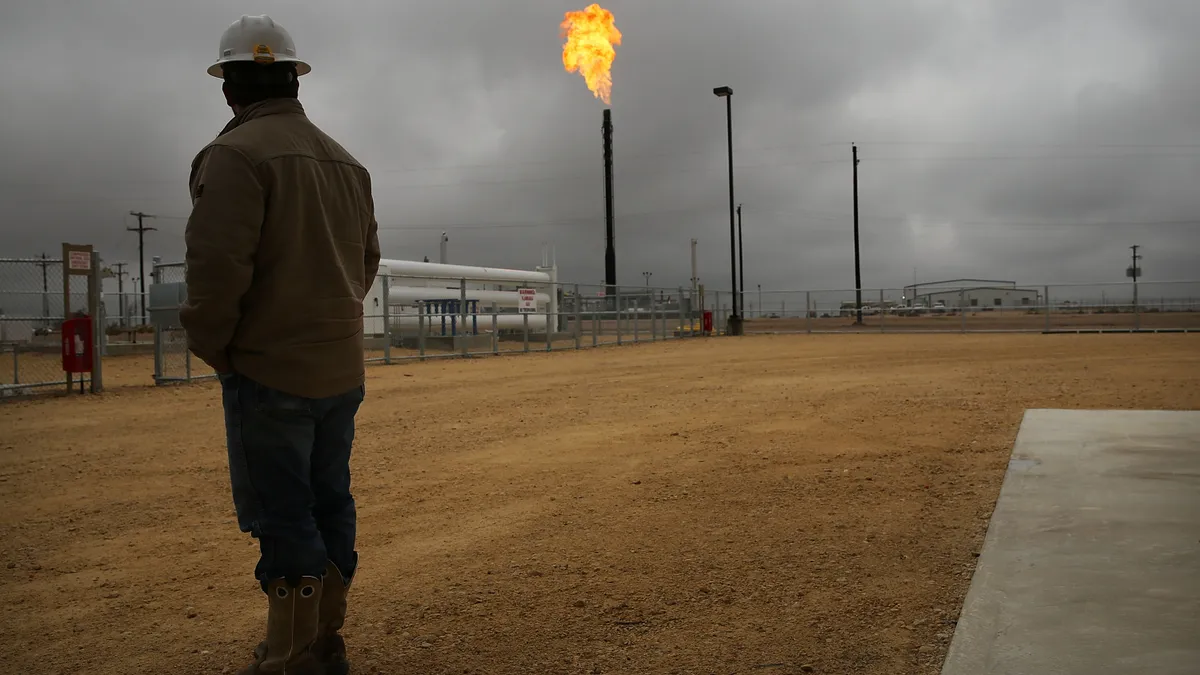The following is a contributed article by Howard Crystal and Ilana Cohen who are with the Center for Biological Diversity's Energy Justice program
In the United States and around the world, regulators are calling on companies to disclose the climate emergency's massive threats to their bottom lines and their business models.
Yet many players in one U.S. sector refuse to embrace the reality of today's climate emergency: electric utilities.
In March, the Securities and Exchange Commission (SEC) called for public input on its climate change disclosure policies. In May, President Joe Biden issued an executive order directing the Department of Treasury and other agencies to address this issue.
And in June, congressional representatives on the House Appropriations Committee affirmed the need for a "robust, standardized climate disclosure framework" that draws on internationally recognized standards to achieve "effective climate risk mitigation and capital allocation." Investors, too, are demanding we move toward a climate-conscious global economy.
This all comes amid anticipation of a global agreement to mandate such disclosure at the United Nations climate conference, COP26, this November.
Unfortunately, even as U.S. utilities present themselves as climate leaders, some are actually working to protect their fossil fuel investments and infrastructure, even with the urgent need for a renewable energy transition.
For example, to protect their gas investments, utilities are convincing state legislatures to preempt city efforts to ban gas connections in new construction. At the same time, they are using social media influencers to promote gas appliances in order to dissuade consumers from pursuing readily available electric alternatives.
And now, U.S. utilities, through their trade groups, are pressing the SEC for weak climate disclosure policies that contradict advice from leading authorities. These watered-down policies would allow utilities to evade accountability as they continue to pursue climate-damaging, financially precarious investments in more fossil fuels.
In their comments to the SEC, utility trade groups encouraged the agency to allow companies to choose which climate change disclosures to follow. They also ask the SEC to not extend any climate risk disclosure requirements to company subsidiaries. And they made no mention of the indirect emissions that come from a company’s value chain — called Scope 3 emissions — which are believed to represent more than 80% of the entire emissions of certain industries. If the SEC were to adopt these efforts to water down disclosures, the public and investors would be left with a misleading picture of a utility company’s overall climate impact.
Every day, Americans pay the price for this behavior in the form of rising utility bills and energy burdens. They also suffer poorer health and increased fatalities from fossil fuel pollution and the climate catastrophe. Americans of color and low-wealth Americans in particular bear the brunt of these energy policies.
This conduct is particularly problematic coming from private corporations whose state-sanctioned monopolies are premised on the principle that utilities act in the public interest.
Shareholders should also be deeply concerned about the failure by some utilities to disclose the financial risks of their refusal to embrace the renewable energy transition. By continuing to build fracked gas plants and fight clean energy initiatives, utilities are setting themselves up to lose out on lucrative opportunities for renewable energy development. They will also suffer the costs of an unreliable grid as the climate crisis intensifies.
Weather and climate disasters have already cost the U.S. more than $1.9 trillion in the past four decades, while utilities have failed repeatedly to adequately prepare for and respond to them. Such negligence — which opens utilities to legal action and financial penalties — will likely mean substantial revenue loss for shareholders.
That's why the U.S. must ensure that utilities provide the information necessary to accurately inform their investors and protect consumers from risky corporate behavior.
Luckily, there are clear models for establishing utility climate risk disclosure requirements, including the leading recommendations of the Financial Stability Board's Task Force on Climate-related Financial Disclosures, which European utilities are already working to implement.
Adopting these recommendations would force utilities to report on how their governance structures, strategies and risk management approaches address climate threats — and the opportunities presented by the vital clean energy transition.
As we detailed in our comments to the SEC, comprehensive climate disclosures by utilities must also address environmental justice and equity. To that end, these disclosures should include the climate-related risks incurred by the full breadth of utility operations, from their holding companies to their subsidiaries and any services they contract. They should also include utilities' political activities, including any climate and environmental lobbying that they're directly or indirectly participating in.
With COP26 approaching and substantial public momentum around the cause, now is the moment for real action.
The Biden administration and the SEC should move quickly to establish robust climate-related disclosure requirements that hold utilities accountable for how they're shaping our energy future. We desperately need to understand the impacts utilities' decisions will have on the communities they are supposed to be serving in the public interest.





















